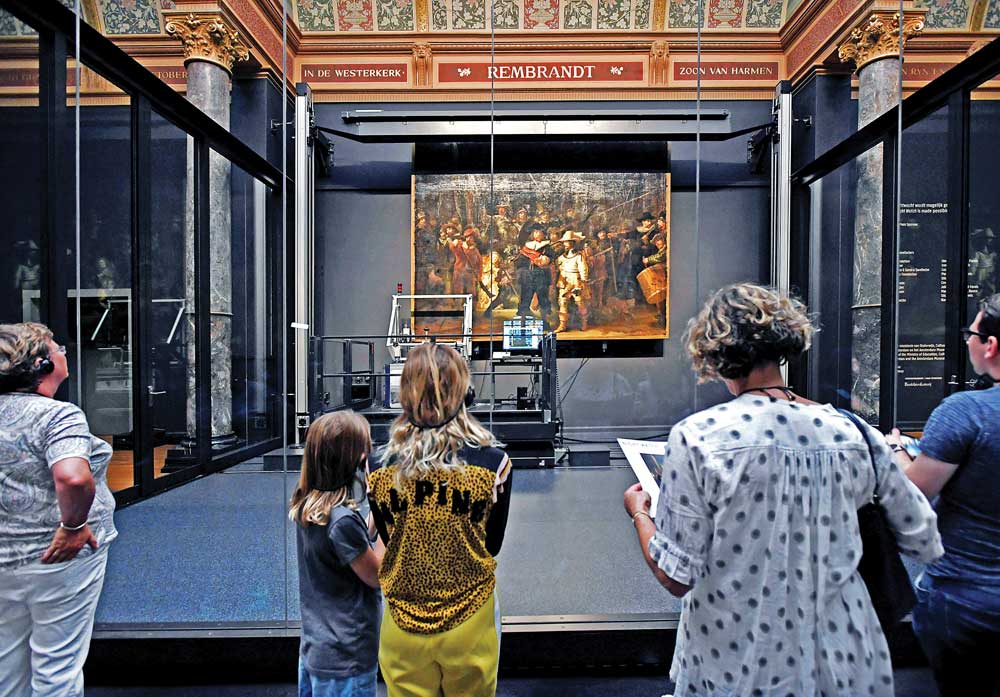Iconic Rembrandt painting to be restored under world's watchful eye
By Earle Gale in London | China Daily Global | Updated: 2019-07-09 23:52

The world will be watching as experts carry out the painstaking restoration of one of the planet's most iconic and beloved works of art – Rembrandt's The Night Watch.
The restoration, something that would normally be carried out behind the scenes in a special workshop, will be completed within the public gallery at Amsterdam's Rijks museum and broadcast live on the internet to anyone with an interest in what is going on.
"It will be carried out under the eyes of the world, and people will be able to follow the conservation wherever they are, whenever they want," the museum's general director, Taco Dibbits, told the Guardian newspaper.
People will also be able to follow proceedings up close and personal by visiting the gallery itself, where a special glass chamber has been built around the painting to accommodate the restoration team.
The museum believes the livestreaming will be the most significant such screening so far of the restoration of a work of art.
The painting, officially titled Militia Company of District II under the Command of Captain Francis Banninck Cocq, was commissioned by the senior soldier it depicts, who had been in charge of the civic guard in Amsterdam.It was completed in 1642, after Rembrandt worked on it for three years, and was produced at the pinnacle of what the art world calls the Dutch Golden Age. The painting has since become one of the most famous paintings in the world and is visited each year by more than 2 million art lovers.
Dibbits said people have such a strong need to see the painting that it would be wrong to take it away from public view while it is restored in a process that will take several years and cost millions of euros.
The painting was last restored in 1975, after it was vandalized in a knife attack by a disgruntled school teacher who said he committed the outrage "for the Lord".
"We continuously monitor the painting and noticed that the restoration of the 1970s had stared to discolor," Dibbits said. "There's a whitish haze which appears on it, so you can't quite appreciate it in its full glory."
The restoration will begin with a very detailed scan that will map every detail of the picture that stands more than 3.5 meters tall and almost 4.5 meters wide.
Conservators working on the project will answer visitors' questions while they work and offer regular updates, during which they will share such things as discoveries made about pigments used by Rembrandt or changes he may have made to the painting while creating it.
The BBC noted that, in addition to being famous for its size and attention to detail, the painting has been widely acclaimed for its use of dramatic lighting and depiction of movement.
The painting has undergone around 25 restorations during its lifetime but the latest is, by far, the most extensive.
In addition to the 1975 knife attack, the painting was slashed in 1911 and sprayed with a chemical in 1990.
























